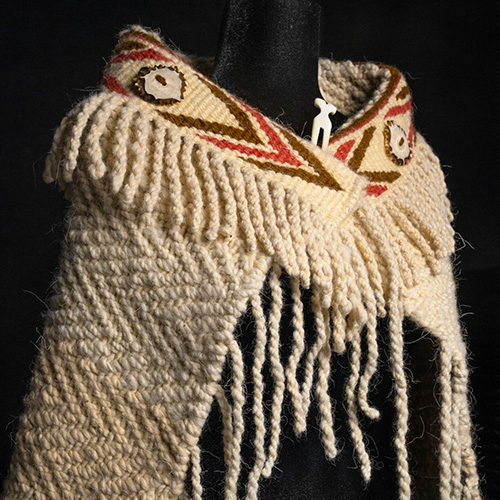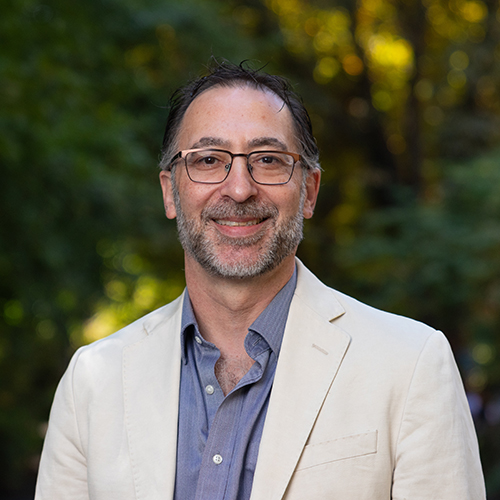A Hispanic student joining the UW Department of Classics graduate program might expect to be an outlier in terms of department demographics. After all, less than three percent of all graduate students studying classics in the U.S. hail from underrepresented groups.
But at the UW, that student would be surrounded by minority graduate students—and a faculty that prides itself on gender equity.
The department is a leader in its field when it comes to diversity, with an astonishing 36 percent of its graduate students coming from underrepresented groups. For its commitment to diversity and gender equity, Classics recently received the Award in Professional Equity from theWomen’s Classical Caucus(WCC), the oldest and largest organization in the world devoted to women in classics.

“There are a number of different kinds of diversity in this department,” says Alain Gowing, professor of classics and chair of the department. “Out of 22 graduate students, we currently have a Native American student, a deaf student, two Korean-American students, four students who have identified as Hispanic, a Chinese student, and one mixed-race student. We also have diversity in sexual orientation.”
For those who wonder what draws such diverse students to the study of classics, Gowing is quick to rebut the popular notion that classics is about dead white men. “Classics is about slaves and tavern keepers and sex workers and priests and Roman aristocrats—it’s everything,” says Gowing. “It’s always astonishing to me to hear my discipline described as monolithic, because you only have to read one page of Herodotus to know that it’s not. The multitude of experience and people that you encounter in any classical text is just extraordinary.”
At the UW, sharing this message with diverse students is a long-standing tradition. In 1995, the department began offering a 10-day spring break trip to Rome for minority students, in partnership with the Office of Minority Affairs and Diversity (OMAD). The program was the brainchild of James Clauss, professor of classics, adjunct in comparative literature and Near Eastern languages and civilization, director of the University Honors Program, and associate dean of Undergraduate Academic Affairs.
“I had started a Latin class for OMAD students in 1993, having observed long ago that when students in general who struggle academically do well with Latin, it can give them the sort of discipline they need to do well in other subjects,” explains Clauss. “Then, because the UW had the Rome Center, I saw an opportunity to introduce OMAD students directly to Rome itself. Together we discovered that Rome was always multicultural from the beginning and that its demise began when it started building walls to keep people out. The students came back from Rome seeing Roman architecture everywhere, in their own homes and community, where it had been mostly invisible to them before. Many came to see that they were part of Roman culture and it was part of them. More than that, there arose a greater sense of curiosity and a realization that there was so much more to learn about the world around us.”
Several recent minority students have had offers of full funding from the most prestigious schools in the country and chose to come here instead because of the character of our department.
The department still offers and co-funds the Rome Program with OMAD. It also offers a college-level Latin course for high school students through the UW in the Schools program, providing scholarships for students who cannot afford the course fee. Supporting these projects despite a tight budget speaks volumes about the department’s priorities.
“It’s not about wanting to make more future classicists to support ourselves,” says Ruby Blondell, professor of classics and adjunct in gender, women and sexuality studies. “It’s about allowing people at every level of education and life to have exposure to material that is cool.” Adds Gowing, “We put our money where our mouth is.”
That attitude extends to the department’s support for graduate students. Classics uses a sizeable portion of its endowed funds for graduate fellowships—a necessity when competing with places like Harvard, Berkeley, and Princeton for top candidates. Despite those prestigious schools’ vast resources, the UW does compete quite successfully, in part due to its scholarly reputation but also because it offers a department culture that sets it apart from many programs.
“Several recent minority students have had offers of full funding from the most prestigious schools in the country and chose to come here instead because of the character of our department,” says Blondell. “They see how we interact with each other and they meet our graduate students. It becomes a self-perpetuating culture.”

Blondell credits Catherine Connors, associate professor of classics and adjunct in gender, women and sexuality studies, for the department’s increasingly diverse graduate program. “She really picked up the agenda and moved it forward,” Blondell says of Connors. An important piece of that effort has been partnering with theGraduate Opportunities and Minority Achievement Program (GO-MAP) in the Graduate School, which provides funding to recruit minority graduate students.
“To be part of GO-MAP, the department must have a diversity plan, with all department faculty voting on the plan,” says Connors. “It outlines what the department does to recruit minority and underrepresented graduate students and looks at retention once they’re here. I give the Graduate School a lot of credit for requiring that. It’s been an extremely useful and interesting process to compose that plan.”
Four current Classics graduate students have received support through GO-MAP—an impressive number given the stiff competition for funding. “I think that reflects the caliber of applicants that our program attracts,” says Connors.
With such talented and diverse graduate students serving as teaching assistants in the department, the ripple effect is considerable. “When undergraduates see someone of Chinese or Korean or Hispanic origin in front of the classroom, they are seeing themselves,” says Gowing. “Our graduate students are great ambassadors for the discipline, and by virtue of who they are, great ambassadors of the multiplicity of the department.” Adds Connors, “The message I have seen communicated by teaching assistants to undergraduates is, ‘You can do this. You can go as far as you want with this.’”
The same can be said of Classics faculty. When Blondell arrived in 1985, she was the only female faculty member. Now the department is 60 percent female. Blondell says the change came gradually but steadily, over time. “Our hiring policy has always been to get the best person and it’s come out this way,” she says. The department is currently filling another faculty position; all three finalists are female.
For all of the department’s efforts toward inclusiveness, the WCC award is well deserved—and tremendously gratifying for the department. “It’s a national recognition of our values,” says Gowing. “That’s what’s most satisfying.”
More Stories

Need a break from holiday movies? Try these
For those wanting a break from holiday movies, Cinema & Media Studies faculty and grad students offer suggestions.

Coast Salish Traditions are "Woven in Wool" at the Burke
A Burke Museum exhibit, co-curated by Coast Salish weavers and Burke curators, highlights the importance of weaving to Coast Salish communities.

The Curious Journey of Chinese Characters
Several Asian countries adapted the Chinese writing system—the oldest writing system still in use—for their own languages. In a new book, Professor Zev Handel shares how that happened.